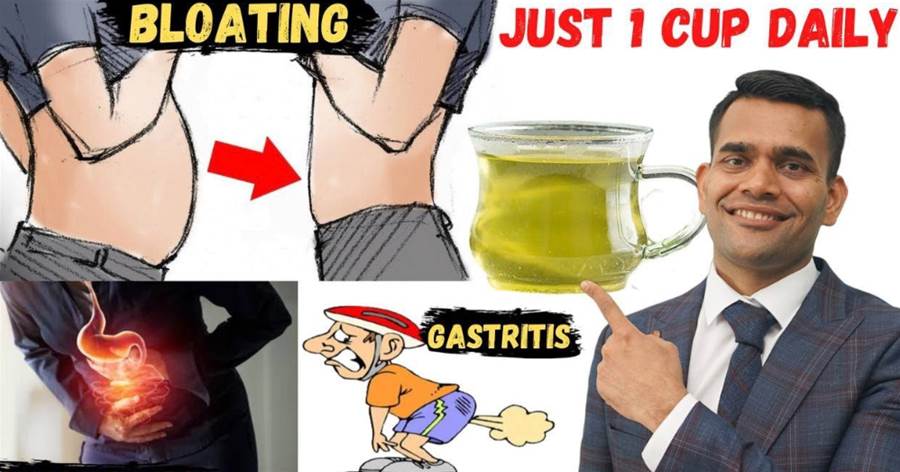
13 Common Signs You Have Poor Blood Circulation Without Even Knowing It
Have you ever felt an unexplained tingling in your fingers or toes? That might be more than just a momentary annoyance.
Poor blood circulation is a sneaky condition that can often go unnoticed for a long time, silently affecting various parts of your body. Let’s dive into some of the surprising signs that your circulatory system might not be performing at its best.
Numbness in your hands or feet might be an early warning sign that blood isn’t flowing as freely as it should be. While it can be easy to dismiss numbness as “just sitting wrong,” it could indicate that your extremities aren't getting enough blood.
If this happens frequently, it’s worth considering if your circulatory system is trying to tell you something more serious.
Do you always have to wear extra socks, even when everyone else is comfortable? Chronically cold hands and feet can be a clear indicator of poor circulation. Blood is responsible for regulating body temperature, and if it’s not reaching your extremities efficiently, they’re going to feel colder than usual. You might even notice that your fingers and toes are a bit blue or pale when this happens.
Swelling in your legs, ankles, or feet can be another subtle sign of poor blood flow. When circulation slows down, blood can start to pool in certain areas, causing swelling. This condition, known as edema, might not always cause pain, but it can still be a signal that something is off. If you notice persistent puffiness, especially at the end of the day, it’s time to pay attention.
Those twisted, bulging veins on your legs might be more than just an eyesore. Varicose veins are a sign that blood is pooling and not moving efficiently through your veins. When valves in your veins become weak, they fail to push blood back up towards the heart, leading to those unmistakable blue lines that snake down your legs. This can also cause discomfort, aching, or even a burning sensation.
Poor circulation doesn’t just affect your extremities—it can also mess with your digestion.
If your blood isn’t circulating well, your digestive tract may not receive the oxygen-rich blood it needs, leading to slow digestion, cramps, or constipation. It might sound strange, but if you’re dealing with persistent digestive discomfort, your circulatory health could be to blame.
If you find yourself feeling constantly drained no matter how much sleep you get, poor circulation could be a factor. Your body relies on oxygen-rich blood to keep energy levels up, and when that blood isn’t reaching your muscles and organs as it should, you may feel exhausted.
This type of fatigue doesn’t just go away with a good night’s rest.
Ever noticed a bluish tint on your skin, especially your fingers or toes? Poor circulation might be causing it. When blood isn’t circulating properly, certain areas of your body might not get enough oxygen, leading to a bluish or pale appearance. This condition is known as cyanosis and can be a pretty obvious clue that something's not right with your blood flow.
We’ve all experienced that “pins and needles” feeling from sitting too long in one position, but if you’re feeling it regularly without an obvious cause, poor circulation could be at the root. Tingling or numbness is a result of nerves not receiving enough oxygen-rich blood.
Have you ever noticed that cuts or bruises seem to take forever to heal? When blood circulation is compromised, it slows down the body’s natural healing processes.
This can leave you with wounds that are slower to close and bruises that linger for longer than usual.
For men, erectile dysfunction can sometimes be linked to poor circulation. If blood flow isn’t sufficient, it can make achieving or maintaining an erection difficult. While this can be a sensitive subject, it’s worth talking to a healthcare provider if you’re experiencing these symptoms.
Blood carries essential nutrients that keep your hair and nails healthy. When circulation is poor, these areas may not get the nutrients they need, leading to brittle nails or unexpected hair loss. If you notice your nails breaking easily or more hair than usual falling out, it might be time to think about what’s going on internally.
Cramping or aching muscles, particularly in the legs, could signal that not enough blood is reaching those muscles. This can happen during activity or even while at rest.
The pain, often known as claudication, typically goes away after some rest, but it shouldn’t be ignored.
Finally, chest pain can be a major red flag when it comes to poor circulation. If blood flow to the heart is restricted, it can cause discomfort or pain known as angina. This symptom should never be overlooked and warrants immediate medical attention.
It’s easy to dismiss these symptoms as unrelated or trivial, but your body may be signaling an underlying circulatory problem.
Don’t ignore what could be warning signs of poor blood flow. Share your thoughts and experiences—have you noticed any of these symptoms in yourself or someone you know? Let’s keep the conversation going!



















